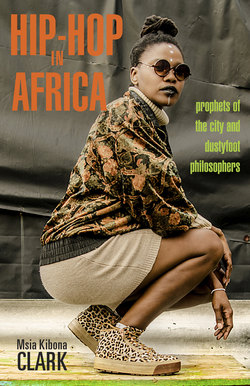Читать книгу Hip-Hop in Africa - Msia Kibona Clark - Страница 10
ОглавлениеAcknowledgments
This project has been years in the making. There has been a network of scholars, artists, and activists who supported this project. Much gratitude to Kibacha Singo (KBC) and Zavara Mponjika for being down since 1996 and helping with the connects in Tanzania, Kenya, and South Africa; and for reminding me to “keep it hip-hop.” Fareed Kubanda (Fid Q) for making the necessary introductions in Dar. Magee McIlvaine and Ben Herson from Nomadic Wax, who helped secure contacts in Senegal, and for starting the Trinity International Hip-Hop Festival. My brother, Becaye Dial, for hooking me up with folks in Dakar. Mamadou Sambe and the Sambe family for welcoming me into your home. Dr. Seth Markle from Trinity College for providing a space for me to meet with artists coming to the Trinity Festival. Prof. Shani Omari from the University of Dar es Salaam for our many discussions about hip-hop in Dar es Salaam and Zanzibar. Kwame Opoku (aka Quame Jr), for introducing me to most of the artists I linked with in Ghana. Sarah Hager from Amnesty International USA for helping with me with Angola links. Burni Aman and Shaheen Ariefdien for all the links in South Africa. Mejah Mbuya for being my historian on graffiti in Tanzania. Tacitus Nana Yabani for introducing me to the Pidgin Music crew and taking me around Accra. Buddha Blaze for helping put the pieces together on hip-hop in Kenya. The comrades in the All-African People’s Revolutionary Party for helping me with accommodations in Ghana. Babaluku and the Bavubuka Foundation for inviting me to Kampala and allowing me to build with Ugandan and Congolese artists. The many artists that were gracious enough to not only allow an interview but responded to my requests for clarification or translation.
To the crew, who supported this project from day one: Dr. Adryan Wallace of the University of Hartford, one of the smartest and funniest people I know, thank you for allowing me to bounce my crazy theories off you. Dr. Mjiba Frehiwot at the Institute of African Studies at the University of Ghana, Legon, and the All-African People’s Revolutionary Party: Mjiba, you are the ultimate activist-academic and you have helped me understand Kwame Nkrumah better than any book. Mamertha Kente, my sister for life, your support allowed me to do my research and not break my bank.
The JCSU family: you guys always held me down. Tamitha Lewis and Hafid McIntyre, your questions about the status of the book kept me on track more than you realized. Nicole Holmes, there’s no one else I’d rather go into battle with.
The illustrious women of Alpha Kappa Alpha Sorority, Inc.: so many of my sorors in academia have been there along this journey, allowing me to lean on the shield by providing advice and support when needed.
Thank you to all the mentors who have encouraged and advised me. In the Department of African Studies at Howard University: Dr. Sulayman Nyang, Dr. Robert Edgar, Dr. Mbye Cham, and Dr. Mohamed Camara. My coaches in the 2016 Junior Faculty Writing and Creative Works Summer Academy at Howard University, especially Associate Provost Okianer Christian Dark, Dr. Den’ee Mwendwa, Dr. Marie-Claude Jipguep-Akhtar, and Dr. Kehbuma Langmia. Thank you to Prof. Imani Sanga and Prof. Abdullah Hamza at the Department of Fine and Performing Arts at the University of Dar es Salaam for graciously hosting me during my Fulbright.
Thank you to my students at California State University, Los Angeles, and Howard University, who scoured the internet to assist in compiling lists of artists, music, and articles. Thank you to the research assistants who helped on the project: Magee Bwire, Lulu Garcia, Semein Abbay, and Darbrielle Thomas.
Thank you to Gillian Berchowitz, who has believed in this project from the beginning and stuck with me through its various iterations.
Thank you to my family: Seko Kibona, Nisa Kibona, and Eluka Kibona. Seko, you have been one of my biggest supporters. Thank you! Atsu Numadzi, my husband and best friend, you have been unquestionably supportive and always willing to help with my work in Ghana. You have also been married to this project and encouraged me so much along the way. My mother, Dr. Sanza Clark, professor emerita at Cleveland State University: you moved between being a mother and an adviser. You helped me crunch the numbers, and watched my son while I was off doing my research. I could never repay you for all you have done, though I am also sure you have all the receipts. To my son, Kaselema, you always seemed to know when I needed to take a break, and insisted that I do so. You also knew when I needed to work, and allowed me more quiet afternoons than I could ever ask for. You have also traveled with me to four countries in search of data, adjusting to the new climate, cuisine, and culture with ease. I love you more than you could imagine.
Funding for this project has been provided by the Fulbright Scholar Program, California State University, Los Angeles, and the Office of Research Development at Howard University.
